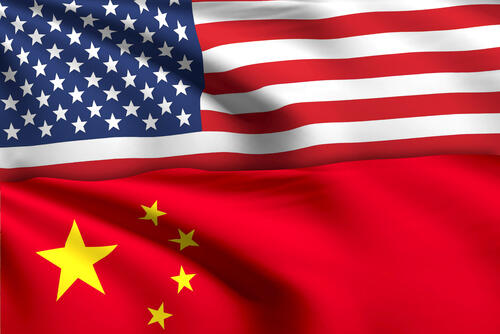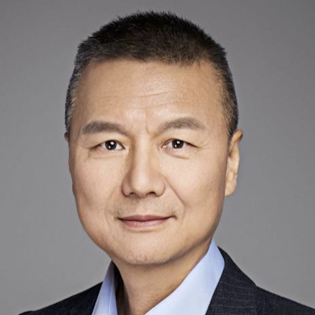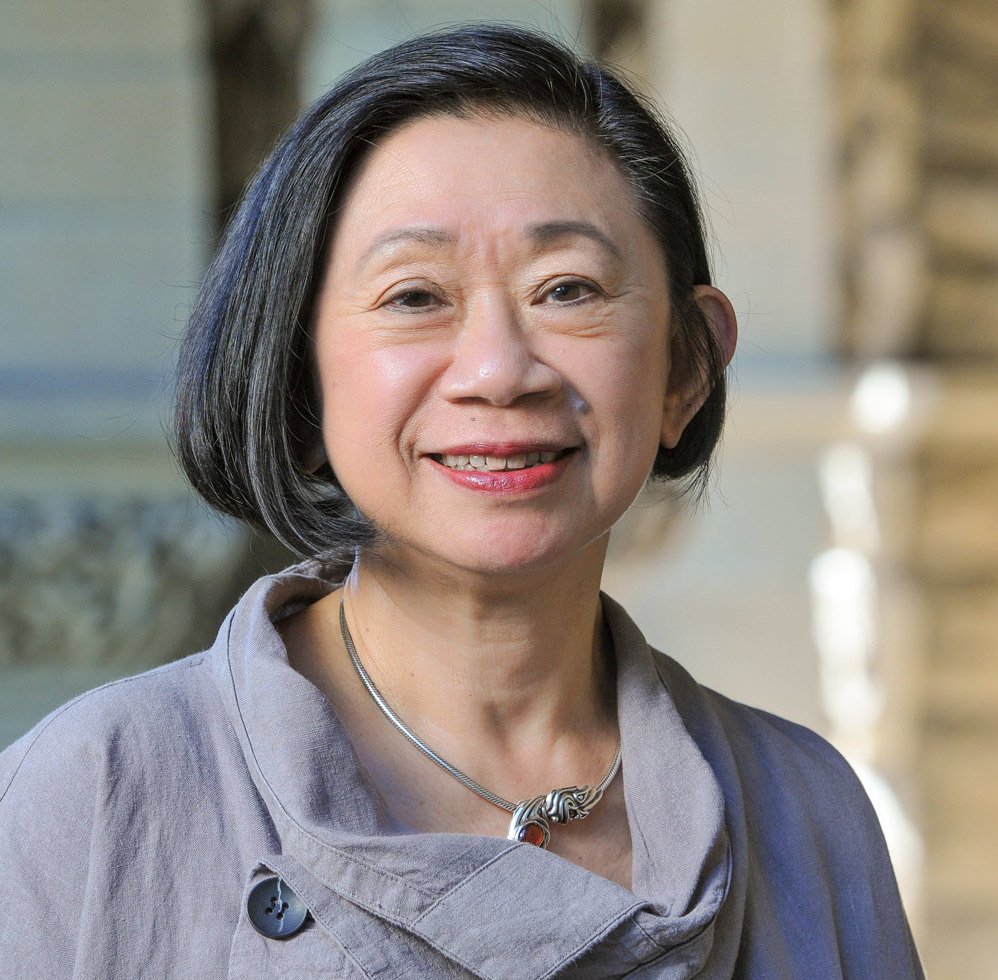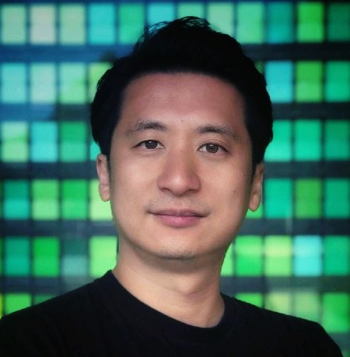The 2020 U.S. Election: Stress Test for American Democracy
The 2020 U.S. Election: Stress Test for American Democracy
Time
January 14th (8:30 a.m. to 10:00 a.m. Beijing Time)
January 13th (4:30 p.m. to 6:00 p.m. Pacific Time)
Language
The language of the event will be English.
Attention
Recording (audiotaping or videotaping) during the event is not allowed.
Sponsored by the Stanford Center at Peking University and the iGCU at Peking University.
Despite a once-in-a-century pandemic, the highest number of voters in 120 years turned out for the U.S. presidential election in November. After all the mail-in ballots were counted, former Vice President Joseph Biden was declared the winner of the popular vote and the Electoral College vote by a wide margin. However, Donald Trump has yet to concede defeat and has mounted a series of court challenges to fight the results, including taking his claims to the Supreme Court.
To help us understand the U.S. election results – an election that some have described as “a referendum on Trump” -- and its aftermath that some have called the “stress test for American democracy,” we convene a roundtable discussion with leading specialists from Stanford University and Peking University.
Speakers

David BRADY holds the Bowen H. and Janice Arthur McCoy Professor of Political Science in the Stanford Graduate School of Business and held the Morris M. Doyle Centennial Chair in Public Policy (emeritus). He is Deputy Director and Davies Family Senior Fellow at the Hoover Institution and has published eight books and over 100 papers in journals and books. Among his more recent publications are Leadership and Growth (World Bank Publications, 2010) coedited with Michael Spence, Revolving Gridlock: Politics and Policy from Carter to Bush II (Westview Press, 2006), and Red and Blue Nation? Characteristics and Causes of America’s Polarized Politics with Pietro Nivola (Brookings Institution Press, 2007). His study on the “electoral basis of gridlock” is forthcoming.
Brady has also published essays in the American Interest, Commentary, Policy Review, and National Affairs as well as numerous articles in Real Clear Politics, Project Syndicate and the Wall Street Journal. He has twice been a Fellow at the Center for Advanced Study in the Behavioral Sciences at Stanford University and has been a Visiting Professor at Harvard University, Sciences Po in Paris, and The Libera Università Internazionale Degli Studi Sociali "Guido Carli" (Luiss) in Rome. He has also been a distinguished lecturer at the American Academy in Berlin and a distinguished professor at Yonsei University in Korea. Brady was elected to the American Academy of Arts and Sciences in 1987.

Bruce E. CAIN is an expert in U.S. politics, and particularly the politics of California and the American West. A pioneer in computer-assisted redistricting in the United States, he is a prominent scholar of U.S. elections, political regulation, and the relationships between American lobbyists and elected officials.
Prior to joining Stanford, Professor Cain was Director of the Institute of Governmental Studies at University of California (U.C.), Berkeley from 1990-2007 and Executive Director of the U.C. Washington Center from 2005-2012. He was elected to the American Academy of Arts and Sciences in 2000 and has won awards for his research (Richard F. Fenno Prize, 1988), teaching (Caltech 1988 and UC Berkeley 2003) and public service (Zale Award for Outstanding Achievement in Policy Research and Public Service, 2000). He is currently working on state regulatory processes and stakeholder involvement in the areas of water, energy, and the environment.

PAN Wei obtained his Ph.D. from the Department of Political Science at the University of California, Berkeley. He is now a Professor in the School of International Studies at Peking University and frequently lectures on world political theory, Chinese politics, comparative politics, and the history of American social development, etc. At present, PAN serves as the Director of the Center for Chinese and Global Affairs of Peking University. His research interests include comparative political theory, comparative politics, political methodology, and Chinese society and government.

WANG Yong holds a Ph.D. in Law from Peking University. Wang serves as the Director of the Center for International Political Economy and as a Professor and Doctoral Supervisor at the School of International Relations, all at Peking University (PKU). He is an Academic Committee Member of the Center for International Strategic Research, a Professor at the CPC Party School of the Ministry of Foreign Affairs of China, the Leading Professor of a PKU training program for senior civil servants in Hong Kong SAR, and a Professor of a PKU training program for African diplomats held by the Ministry of Commerce of China. He is also a Consultant for the Asian Development Bank, a member of the International Institute for Strategic Studies (UK), and a member of the Global Agenda Committee of the Global Trade System of the World Economic Forum in Davos, Switzerland. His research areas include Sino-US relations, Sino-US economic relations, trade politics, regional cooperation, international economic relations, international political economics, etc. In 2008, he was selected into the "Program for New Century Excellent Talents" by the Ministry of Education of China.
Moderators

Jean C. Oi is the William Haas Professor of Chinese Politics in the Department of Political Science and a senior fellow in the Freeman Spogli Institute for International Studies at Stanford University. She directs the China Program at the Walter H. Shorenstein Asia-Pacific Research Center and is the Lee Shau Kee Director of the Stanford Center at Peking University. Oi has published extensively on China’s reforms. Recent books include Fateful Decisions: Choices that will Shape China’s Future, coedited with Thomas Fingar (Stanford University Press, 2020), Zouping Revisited: Adaptive Governance in a Chinese County, coedited with Steven Goldstein (Stanford University Press, 2018), and Challenges in the Process of China’s Urbanization, coedited with Karen Eggleston and Yiming Wang (2017). Current research is on fiscal reform and local government debt, continuing SOE reforms, and the Belt and Road Initiative.

Wang Dong is the Deputy Director of the Office for Humanities and Social Sciences and the Executive Director of the Institute for Global Cooperation and Understanding, all at Peking University. He also serves as Member of the Steering Committee of the East Asia Security Forum, Chinese Overseas Educated Scholars Association, International Advisory Committee Member of the Shanghai Academy of Area Studies and Global Governance, Advisory Committee Member for the Carter Center-Global Times US-China Young Scholars Forum, and Secretary-General of the Pangoal Institution, a leading China-based public policy think tank.
Wang Dong received his bachelor in law from Peking University and M.A. and Ph.D. in political science from the University of California, Los Angeles (UCLA). Wang has written extensively on international relations and China’s foreign policy. He is the author and/or editor of such English-language publications as Re-globalization: When China Meets the World Again (Routledge, 2020, forthcoming); and Avoiding the Thucydides Trap: US-China Relations in Strategic Domains, coedited with Travis Tanner (Routledge, 2020, forthcoming). Wang was named a “Munich Young Leader” in 2016 (the only awardee from China); and was selected by the inaugural program of “Preeminent Young Scientists” of Beijing in 2018, one of the most prestigious awards ever given in China.
This is an exclusive Webinar for Stanford and PKU communities. Please use your Stanford or PKU email to register at https://stanford.zoom.us/webinar/register/WN_jpjlMTasSfeQo8IcUZE2xQ

 Hau L. Lee is the Thoma Professor of Operations, Information and Technology at the Graduate School of Business at Stanford University. He was the founding faculty director of the Stanford Institute for Innovation in Developing Economies (SEED), and is the current Co-Director of the Stanford Value Chain Innovations Initiative. Professor Lee’s expertise is on global supply chain management and value chain innovations. He has published widely in top journals on supply chain management. He was inducted to the US National Academy of Engineering, and elected a Fellow of MSOM, POMS; and INFORMS. He was the previous Editor-in-Chief of Management Science. In 2006-7, he was the President of the Production and Operations Management Society. His article, “The Triple-A Supply Chain,” was the Second Place Winner of the McKinsey Award for the Best Paper in 2004 in the Harvard Business Review. In 2004, his co-authored paper in 1997, “Information Distortion in a Supply Chain: The Bullwhip Effect,” was voted as one of the ten most influential papers in the history of Management Science. His co-authored paper, “The Impact of Logistics Performance on Trade,” won the Wickham Skinner Best Paper Award by the Production and Operations Management Society in 2014. In 2003, he received the Harold Lardner Prize for International Distinction in Operations Research, Canadian Operations Research Society. Professor Lee obtained his
Hau L. Lee is the Thoma Professor of Operations, Information and Technology at the Graduate School of Business at Stanford University. He was the founding faculty director of the Stanford Institute for Innovation in Developing Economies (SEED), and is the current Co-Director of the Stanford Value Chain Innovations Initiative. Professor Lee’s expertise is on global supply chain management and value chain innovations. He has published widely in top journals on supply chain management. He was inducted to the US National Academy of Engineering, and elected a Fellow of MSOM, POMS; and INFORMS. He was the previous Editor-in-Chief of Management Science. In 2006-7, he was the President of the Production and Operations Management Society. His article, “The Triple-A Supply Chain,” was the Second Place Winner of the McKinsey Award for the Best Paper in 2004 in the Harvard Business Review. In 2004, his co-authored paper in 1997, “Information Distortion in a Supply Chain: The Bullwhip Effect,” was voted as one of the ten most influential papers in the history of Management Science. His co-authored paper, “The Impact of Logistics Performance on Trade,” won the Wickham Skinner Best Paper Award by the Production and Operations Management Society in 2014. In 2003, he received the Harold Lardner Prize for International Distinction in Operations Research, Canadian Operations Research Society. Professor Lee obtained his 




 Alvin Shiqi Wang (王世琪) has served as CEO and President of 21Vianet Group, Inc. since February 2018. Currently, Mr. Wang serves as Vice President of TUS Digital Group, a subsidiary of TUS Holdings, and serves on the board of directors of Beijing CIC Technology Co., Ltd. and Guangzhou Tuwei Technology Co., Ltd. . Mr. Wang has nearly 20 years of experience in the telecommunications industry, working at various renowned international companies, including 11 years with Ericsson, focusing primarily on strategy development and execution, corporate management, and equity investments. Mr. Wang received a bachelor's degree from Tsinghua University and an MBA from Peking University-Vlerick MBA Programme (BiMBA).
Alvin Shiqi Wang (王世琪) has served as CEO and President of 21Vianet Group, Inc. since February 2018. Currently, Mr. Wang serves as Vice President of TUS Digital Group, a subsidiary of TUS Holdings, and serves on the board of directors of Beijing CIC Technology Co., Ltd. and Guangzhou Tuwei Technology Co., Ltd. . Mr. Wang has nearly 20 years of experience in the telecommunications industry, working at various renowned international companies, including 11 years with Ericsson, focusing primarily on strategy development and execution, corporate management, and equity investments. Mr. Wang received a bachelor's degree from Tsinghua University and an MBA from Peking University-Vlerick MBA Programme (BiMBA). Xiang Wang (王翔) is President and Acting CFO of Xiaomi Corporation, responsible for platform functions and for assisting the CEO with Group operations. Mr. Wang joined Xiaomi Corporation in July 2015 served as its Senior Vice President and President for International Business, responsible for global expansion, IP strategy, and strategic partner relationship management. Mr. Wang has more than 20 years of experience in the semiconductor and communications fields, with great vision and comprehensive understanding of next-generation wireless communications. He has played an integral role in shaping Xiaomi’s international business operations including with respect to its intellectual property compliance, management and strategy throughout the world. In 2016, Mr. Wang put together an international team of sales and marketing teams to expand into more markets outside of China. Within just 3 years, he led his teams into over 90 markets. As of Q3 2019, Xiaomi’s international revenue accounted for 48.7% of its total revenue. Today, Xiaomi is ranked among top 5 smartphone brands in over 40 markets. Mr. Wang previously served as the Senior Vice President of Qualcomm and President of Qualcomm Greater China, leading the company’s business and operations in Greater China. Prior to that role, he was Vice President of Qualcomm CDMA Technology, responsible for Qualcomm chipset business and customer service in China. Under his leadership, Qualcomm rapidly extended and strengthened its partnerships with increasing numbers of Chinese manufacturing customers. Before joining Qualcomm, Mr. Wang held key positions in sales and marketing at internationally leading companies, including Motorola and Lucent/Agere. Mr. Wang earned his BSEE from Beijing Polytechnic University.
Xiang Wang (王翔) is President and Acting CFO of Xiaomi Corporation, responsible for platform functions and for assisting the CEO with Group operations. Mr. Wang joined Xiaomi Corporation in July 2015 served as its Senior Vice President and President for International Business, responsible for global expansion, IP strategy, and strategic partner relationship management. Mr. Wang has more than 20 years of experience in the semiconductor and communications fields, with great vision and comprehensive understanding of next-generation wireless communications. He has played an integral role in shaping Xiaomi’s international business operations including with respect to its intellectual property compliance, management and strategy throughout the world. In 2016, Mr. Wang put together an international team of sales and marketing teams to expand into more markets outside of China. Within just 3 years, he led his teams into over 90 markets. As of Q3 2019, Xiaomi’s international revenue accounted for 48.7% of its total revenue. Today, Xiaomi is ranked among top 5 smartphone brands in over 40 markets. Mr. Wang previously served as the Senior Vice President of Qualcomm and President of Qualcomm Greater China, leading the company’s business and operations in Greater China. Prior to that role, he was Vice President of Qualcomm CDMA Technology, responsible for Qualcomm chipset business and customer service in China. Under his leadership, Qualcomm rapidly extended and strengthened its partnerships with increasing numbers of Chinese manufacturing customers. Before joining Qualcomm, Mr. Wang held key positions in sales and marketing at internationally leading companies, including Motorola and Lucent/Agere. Mr. Wang earned his BSEE from Beijing Polytechnic University.
 Zhiqiang (ZZ) Zhang (张志强) is President of ABB in China since October 2018. He has extensive management experience and a deep understanding of the Chinese market, developed during his career at several large global companies over the past three decades. He joined ABB from Sandvik where he was Asia- Pacific Regional Holding Officer and President of Sandvik China, and Member of Sandvik Group Executive Committee. Prior to that, he held leadership positions at several other companies, including Nokia Siemens Networks, where he was President of the Greater China Region, and Siemens VDO Automotive, China, where he was President and CEO. Mr. Zhang is Non-Executive Board member of Georg Fischer AG (Switzerland) and Daetwyler Holding AG (Switzerland). He holds a bachelor’s degree in electronic engineering from Beijing Jiaotong University, China, and a master’s degree in business administration from the Smith School of Business at Queen’s University in Canada.
Zhiqiang (ZZ) Zhang (张志强) is President of ABB in China since October 2018. He has extensive management experience and a deep understanding of the Chinese market, developed during his career at several large global companies over the past three decades. He joined ABB from Sandvik where he was Asia- Pacific Regional Holding Officer and President of Sandvik China, and Member of Sandvik Group Executive Committee. Prior to that, he held leadership positions at several other companies, including Nokia Siemens Networks, where he was President of the Greater China Region, and Siemens VDO Automotive, China, where he was President and CEO. Mr. Zhang is Non-Executive Board member of Georg Fischer AG (Switzerland) and Daetwyler Holding AG (Switzerland). He holds a bachelor’s degree in electronic engineering from Beijing Jiaotong University, China, and a master’s degree in business administration from the Smith School of Business at Queen’s University in Canada. Jean C. Oi is the William Haas Professor of Chinese Politics in the Department of Political Science and a senior fellow in the Freeman Spogli Institute for International Studies at Stanford University. She directs the China Program at the Walter H. Shorenstein Asia-Pacific Research Center and is the Lee Shau Kee Director of the Stanford Center at Peking University. Professor Oi has published extensively on China’s reforms. Recent books include Zouping Revisited: Adaptive Governance in a Chinese County, coedited with Steven Goldstein (Stanford University Press, 2018), and Challenges in the Process of China’s Urbanization, coedited with Karen Eggleston and Yiming Wang (2017). Current research is on fiscal reform and local government debt, continuing SOE reforms, and the Belt and Road Initiative.
Jean C. Oi is the William Haas Professor of Chinese Politics in the Department of Political Science and a senior fellow in the Freeman Spogli Institute for International Studies at Stanford University. She directs the China Program at the Walter H. Shorenstein Asia-Pacific Research Center and is the Lee Shau Kee Director of the Stanford Center at Peking University. Professor Oi has published extensively on China’s reforms. Recent books include Zouping Revisited: Adaptive Governance in a Chinese County, coedited with Steven Goldstein (Stanford University Press, 2018), and Challenges in the Process of China’s Urbanization, coedited with Karen Eggleston and Yiming Wang (2017). Current research is on fiscal reform and local government debt, continuing SOE reforms, and the Belt and Road Initiative. Christopher Thomas was most recently a partner with McKinsey & Company. He served as co-Managing Partner for the Firm’s Global Digital Strategy service line as well as its Global IoT service line; and as the leader of its Asia Semiconductor Practice. Prior to McKinsey, Mr. Thomas spent ten years at Intel. He was the General Manager of Intel China, with joint ownership for the region’s $5 billion-plus P&L. In this role, he grew revenues by more than 50% and oversaw China’s successful elevation from a sales unit to an independent regional P&L business reporting directly into headquarters. Mr. Thomas began his career as a private equity investor at The Blackstone Group in New York City. He is currently a Visiting Professor at Tsinghua University, China’s leading educational institution. He received an MBA from Stanford Business School, where he was an Arjay Miller scholar; a Master of Arts in Political Science from Stanford University; and a Bachelor of Science in Economics, summa cum laude, from the Wharton School.
Christopher Thomas was most recently a partner with McKinsey & Company. He served as co-Managing Partner for the Firm’s Global Digital Strategy service line as well as its Global IoT service line; and as the leader of its Asia Semiconductor Practice. Prior to McKinsey, Mr. Thomas spent ten years at Intel. He was the General Manager of Intel China, with joint ownership for the region’s $5 billion-plus P&L. In this role, he grew revenues by more than 50% and oversaw China’s successful elevation from a sales unit to an independent regional P&L business reporting directly into headquarters. Mr. Thomas began his career as a private equity investor at The Blackstone Group in New York City. He is currently a Visiting Professor at Tsinghua University, China’s leading educational institution. He received an MBA from Stanford Business School, where he was an Arjay Miller scholar; a Master of Arts in Political Science from Stanford University; and a Bachelor of Science in Economics, summa cum laude, from the Wharton School.